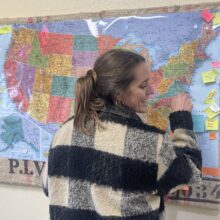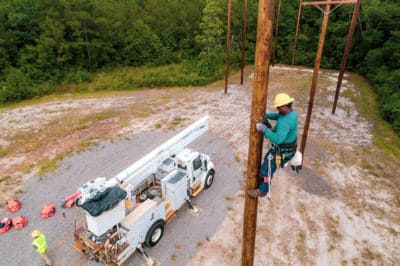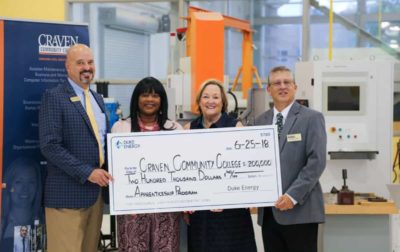Michael Stutts was 23 years old when he took a job as a lineworker at Duke Energy. More than two decades later, he is still helping people turn the lights on — but now it is by teaching a new generation to do so as an instructor with Durham Tech’s Electrical Line Technician program.
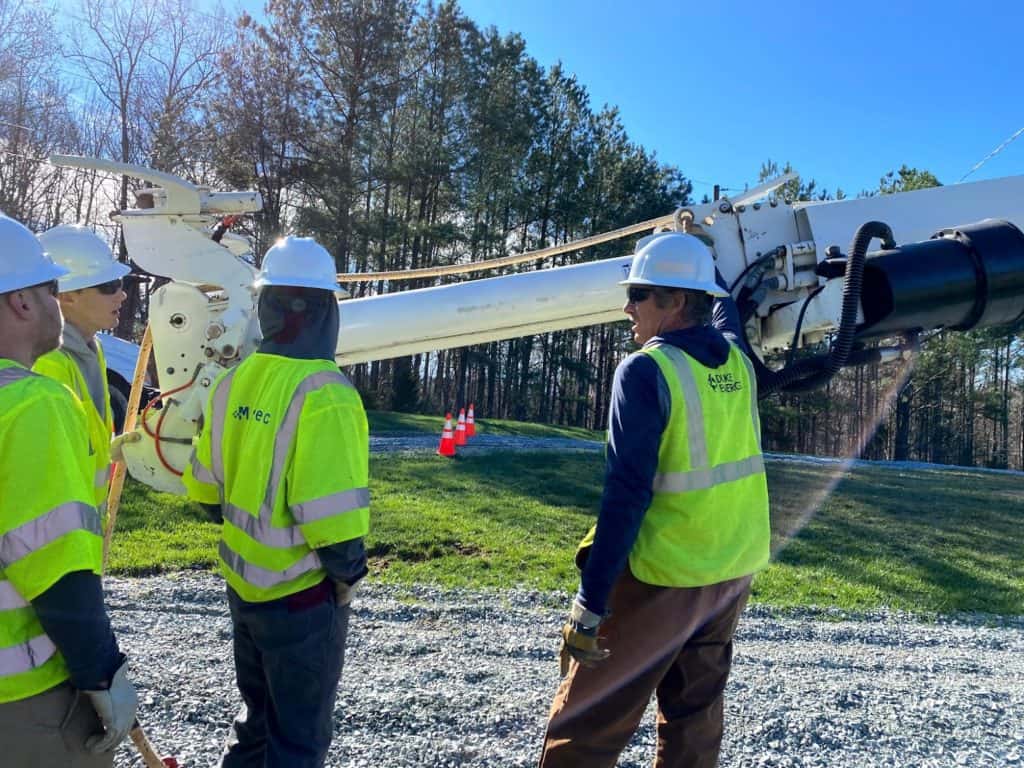

The U.S. Department of Labor in 2016 estimated there would be a 15% increase in lineworker jobs over the next 10 years. The Carolinas Energy Workforce Consortium adds there is a future long-term plan to update the current electrical grid that would require more skilled workers. Combine those stats with an aging workforce looking to retire and you find a big workforce hole to fill.
Enter Duke Energy. In 2018, the company announced a nearly $200,000 grant for Durham Technical Community College to fund a specific pre-apprenticeship program that would meet workforce needs and support students wanting lineworker jobs. The course teaches all the basics of line technician work, but according to instructor Stutts, it is also “getting [them] ahead of the game. Students are getting what used to be on-the-job training here at the lineworkers program.”
The first class of this 10-week program began in the fall of 2019. There have been two cohorts so far, and in the fall of 2020, they will increase that number. From then on out, there will be two cohorts in the spring and two in the fall. The grant covers tuition and fees for students as well as supplies and classroom resources.
Current student Joshua Keravuoi says he was looking at two different programs, and was originally planning to attend school elsewhere, but heard about the grant and chose to go to Durham Tech. Keravuoi commutes from Raleigh and was interested in line work because of its future.
“What I like most is that there’s always job security, there’s always going to be a need for it. And this is, you know, good honest work and [it’s] helping the community when times get get a little rough,” he said.

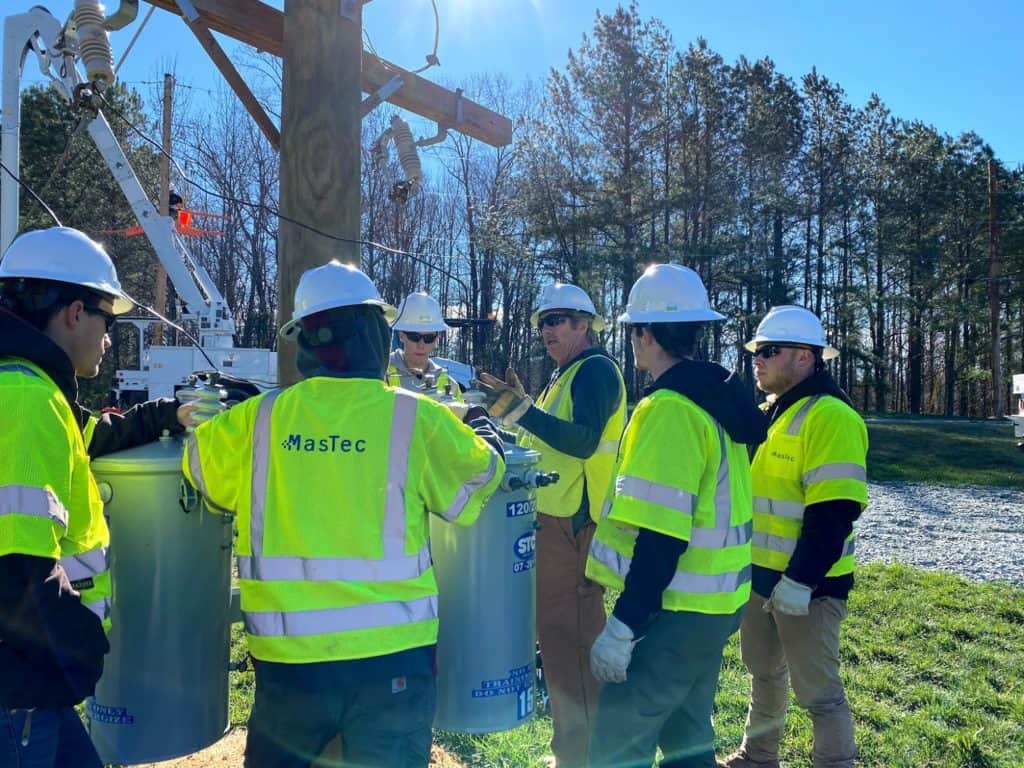
Electrical Line Technician program. Caroline Parker/EducationNC 
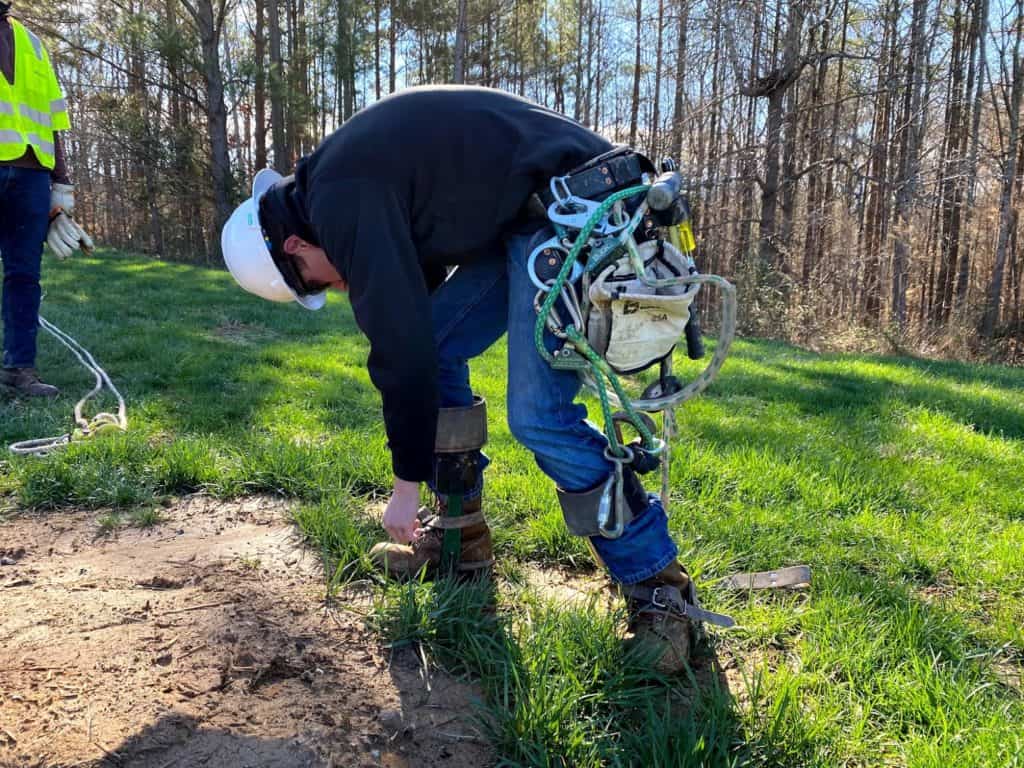
Student going up power pole. Caroline Parker/EducationNC 
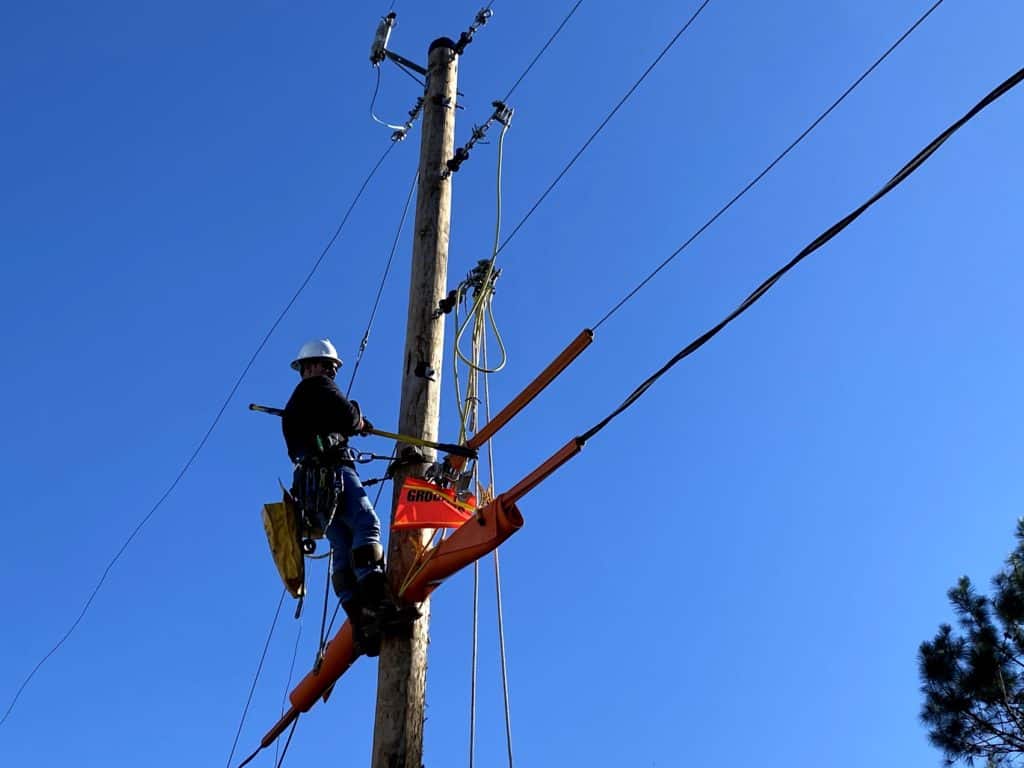
Real world lineworker experience. Caroline Parker/EducationNC 
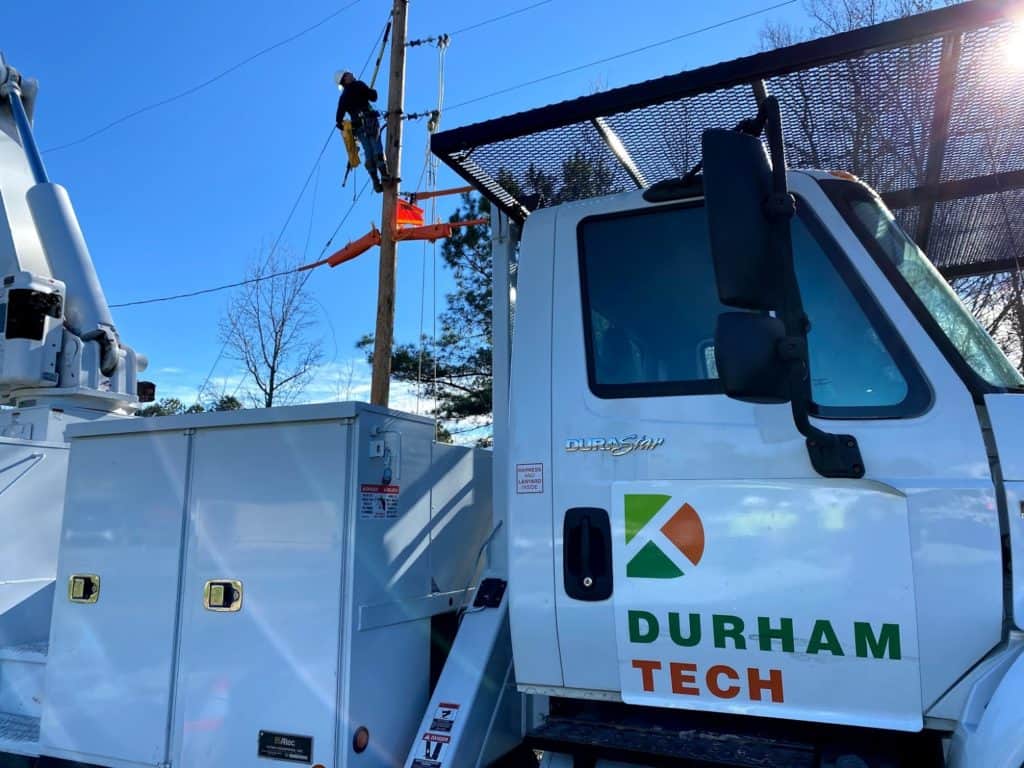
Durham Tech equipment and student. Caroline Parker/EducationNC
The program’s other instructor, Wallace Wilson, worked for Piedmont EMC. Students have two previously employed lineworkers with decades of on-the-job experience as their instructors.
If any of the program participants have questions about the livelihood of their potential careers, they can look to the instructors for answers. Stutts spoke with us about how his experiences impact his teaching and what he would want people to know about the program. See part of our conversation below, edited for clarity and length.
Parker: What is most important to you when you’re teaching?
Stutts: Integrity. That’s just a personal thing. I try to tell these folks, companies want good, honest people with integrity — they can teach you to do the work. They want someone they can trust, who is reliable, who can show up on time and be accountable for what they do. It’s a lot of trust in this work, just because it is dangerous, you’ve got to trust your partner.
Parker: What skills do you think you have that make you an effective teacher?
Stutts: I’ve got a lot of years experience. I’ve got three grown boys and I’ve coached enough Little League football and … I was blessed to play athletics and be taught by some good coaches in my life. I had mentors. So that I think helped me, I hope has helped me, to pass that on. I feel very fortunate that I had the opportunities I had. A lot of stuff I learned how to teach was through my high school coaches and mentors and that carried over into this world. Who would have thought it?
Parker: How often are you all in a classroom versus outside?
Stutts: The weather drives a lot of it. We spend as much time outside, hands on as we can because that’s where the value is. Actually put your hands on the equipment, climbing poles, moving things around. But we do have a curriculum to follow. We have 10 or 12 written tests to take. We’ve got a nice handbook we use in the classroom that covers pole climbing, safety, transformers, and all the tools of the trade, all how to build it. So we have good resources to use … they’ve done a good job to put it together.
Parker: If there’s anything you would want people to know about this program, what would it be?
Stutts: They are working hard to make it successful. They are putting a lot of effort and energy in it. The intent is good — look at this nice training center they’ve put together. It’s a positive thing. If you’re interested in doing this type of work, this is not for everybody. The school was making a real valid effort to put something solid together out here to help people learn how to make a living.
Editor’s Note: The Duke Energy Foundation supports the work of EducationNC.

